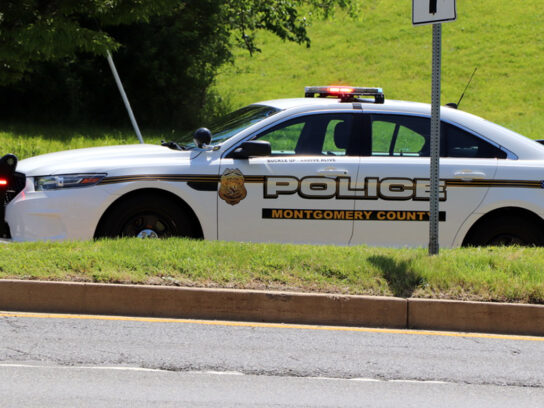
County Councilmember Will Jawando plans to proceed with other parts of a bill that aims to address racial disparities in traffic enforcement by limiting stops, after the Maryland Attorney General concluded a provision was preempted by state law.
Jawando introduced the Safety and Traffic Equity in Policing (“STEP”) Act in February.
Last month, the Attorney General issued an opinion stating the bill would require county police to treat certain traffic offenses as secondary, but state law has not defined those as secondary offenses.
The Attorney General concluded that the Maryland General Assembly overrides local government authority for subjects addressed by the state vehicle law.
“In our view, the Vehicle Law would expressly preempt the STEP Act’s provision designating certain traffic offenses as secondary,” the Sept. 15 opinion stated.
But, the state law would not preempt the bill’s other provisions, particularly the limitation on consent searches.
In a statement Wednesday, Jawando acknowledged that the opinion — from Attorney General of Maryland Anthony Brown and Assistant Attorney General Thomas Chapman — found part of the bill to be preempted by state law. But, he noted that the prohibition of consent searches and data collection provisions are not preempted, and he plans to move forward with those provisions in the bill.
“I plan to proceed with the consent search and data provisions in the bill and I urge our leaders in the Montgomery County General Assembly Delegation to review the opinion, and consider improvements at the state level that further the goals of the STEP Act. We must address racial disparities in traffic enforcement and focus on enforcement of traffic violations that are the key drivers of serious injuries and fatalities,” Jawando stated.


Comments are closed.